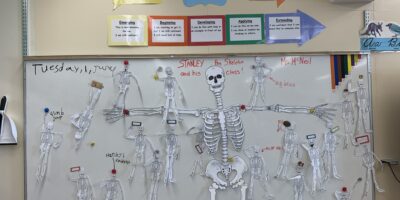I was fortunate enough to attend both the POPEY- Provincial Outreach Program for Early Years hosted with Independent Schools and SD57 Indigenous Day of Learning. Attending POPEY was a great experience for me because of the focus on earlier years. My goal is primary elementary years and learning and seeing different resources that educators have used and found to work was exciting to experience. In POPEY I learned about the Universal Design for Learning (UDL) and the guidelines that followed it. To support this learning, we did virtual activity sheets, and discussed brain compatible activities that could work with audible, tactile, kinesthetic and visual learners. This was informational because we talked about how educators tend to teach in ways that they would learn in, but that all students are different learners. If visual works for one individual, it will not work for all and while lesson planning may not be easy, it is important to try and incorporate all or more then one ways that students can learn or be able to switch up the methods of teaching to make sure that all students are receiving the opportunity to demonstrate how they can learn. We also talked about the Principles of Differentiation instructions. This was useful because it highlighted ways that are non-negatable for differentiated instructions and how to assess them in a classroom. We did several breakout rooms where I got to talk to 5 other teachers who were not located in PG but all-around BC and learn the ways that they incorporated these things into their classroom, but also the ways that they were still changing and advancing these methods. A major topic that was discussed was environmental, and how to keep it inviting and safe during these times of Covid-19. Many of the teachers stated that hand washing, safe distances, masks and new activities where students did not have to remain close to each other was something that was being addressed and adapting everyday with how the students were handling these new systems. This session ended with several resources being shared by links, and how they would love for teacher to use all the documents they created. I look forward to reading and using more of these templated in my future learning and teachings.
Following POPEY, I quickly jumped over to the Indigenous Day of Learning. While it was halfway through the second presentations, I got lucky and was able to join the “How the DLC Supports Indigenous Education” with Joseph Jeffery. When I joined in, I got to listen to Joseph talk about Currio website resource, and the kits that can support these learnings. He mentioned how teachers can find teaching guides attached to the curio site, as well as find similar resources that are connected to the ideas that particular kits and sources are offering.
After a quick lunch break, I listened in on the final Keynote speaker Dr. Niigaanwewidam James Sinclair. This was a very interesting person to listen to due to the knowledge and active involvement that he has in the Indigenous community, particularly on the East Coast, but moving all around Canada to share what he has learned. His document Climbing the Mountain: Educating Reconciliation in Canada with the help of Indspire, was as amazing resource to receive. While I have not had time to read all 200+ pages of it, it will be a great source to have access to during this program, and future teachings. Sinclair’s lecture is important to teachers and learners because it makes the connection between reconciliation and what the present and future hold for Indigenous learners. Sinclair said it best when stating that if you are ignorant and not acknowledging Indigenous education in your own teachings you are unemployable. Canada is changing in the way that Indigenous pasts are being viewed, and this is not going to stop. As future educators we need to get on board, support and learn ourselves how to incorporate these ways into our own teaching skills to be able to engage and encourage all students to be aware and involved of Indigenous ways, because we are just as must apart of it s they are. We live on this land, we need to show respect, but then also teach that to students and more future educators.
Overall this day was an amazing first professional development day to have been involved in. I was amazingly lucky to have attended both virtual sessions, and now have access to the knowledge and information that was shared.
Curio.ca
Popey.ca



Leave a Reply